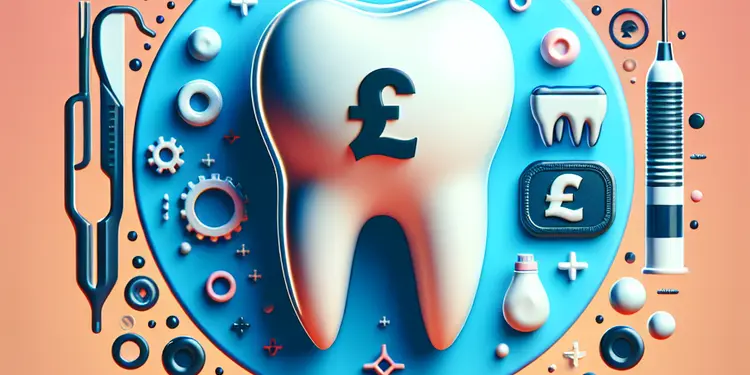
Find Help
More Items From Ergsy search
-
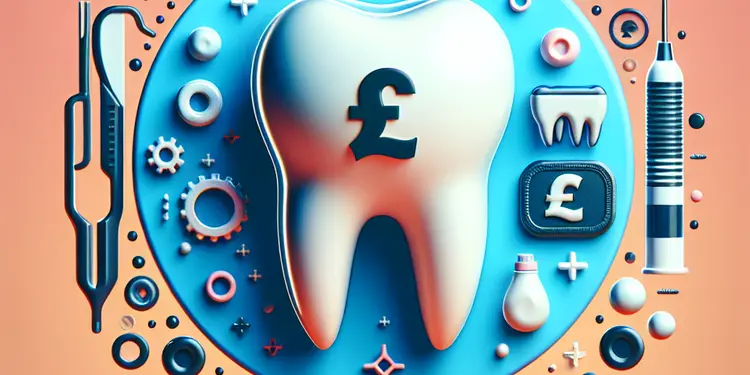
How can I prevent tooth decay?
Relevance: 100%
-
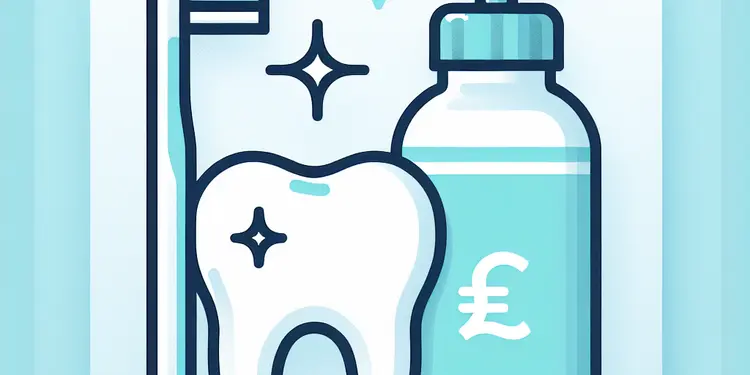
Can using mouthwash prevent tooth decay?
Relevance: 96%
-
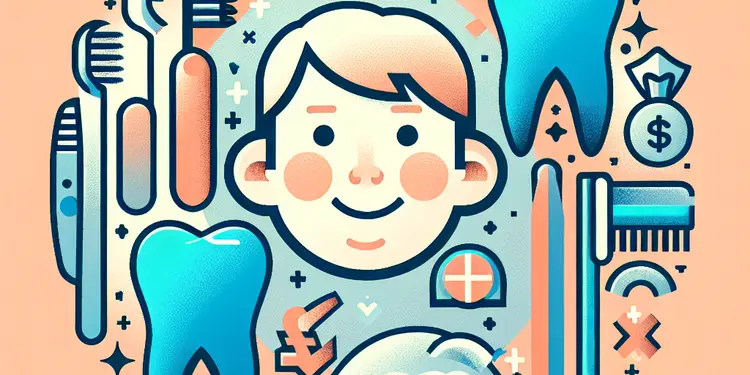
Is tooth decay common in children?
Relevance: 92%
-
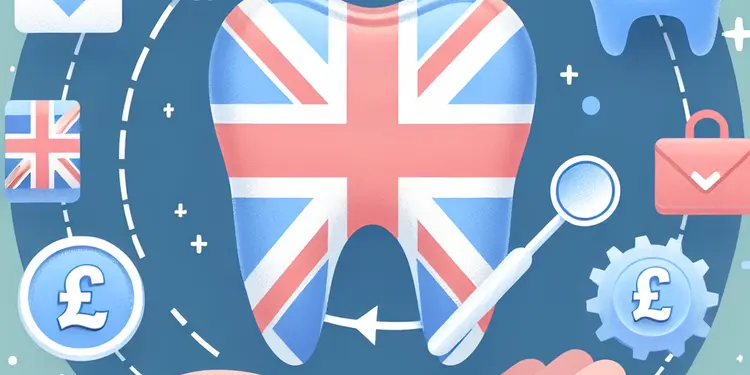
Can tooth decay be reversed?
Relevance: 91%
-

How is tooth decay diagnosed?
Relevance: 91%
-
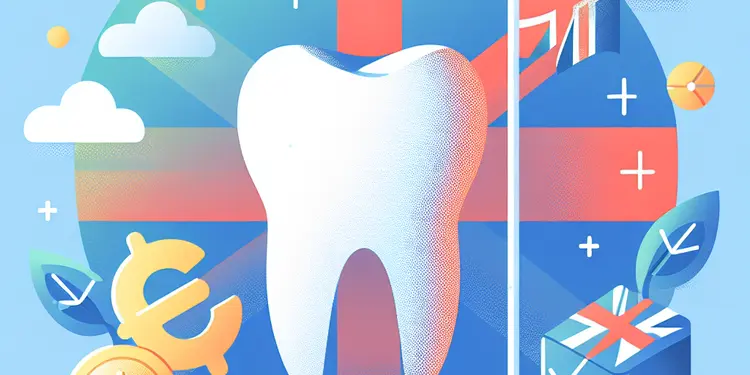
What are the symptoms of tooth decay?
Relevance: 90%
-
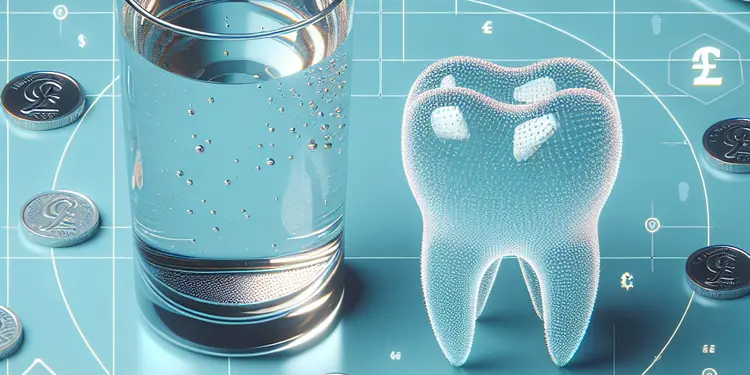
Can drinking water help prevent tooth decay?
Relevance: 90%
-
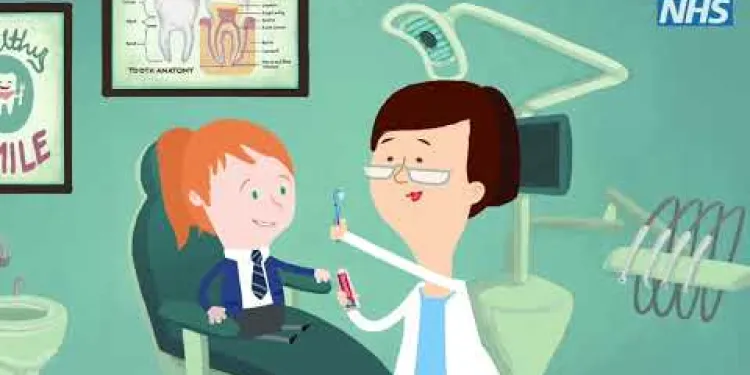
Oral Health Awareness - Tooth Decay
Relevance: 90%
-
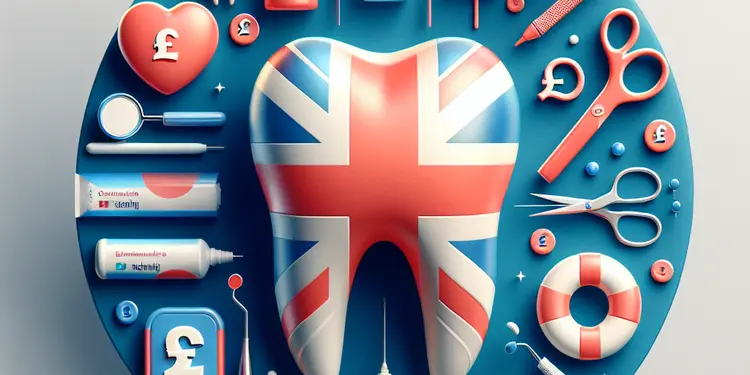
How does fluoride help prevent tooth decay?
Relevance: 90%
-

How does diet affect tooth decay?
Relevance: 85%
-
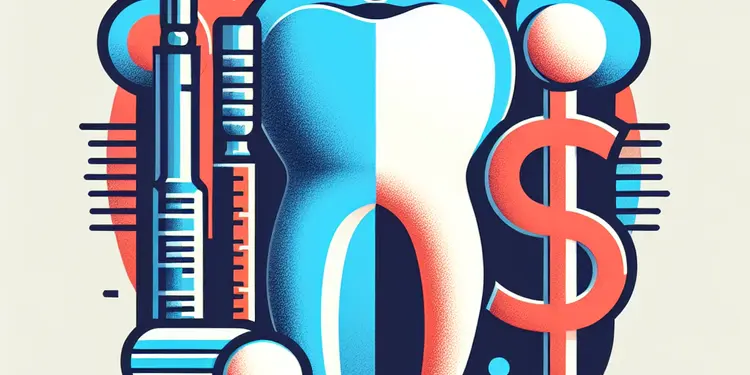
What is the role of dental sealants in preventing tooth decay?
Relevance: 82%
-
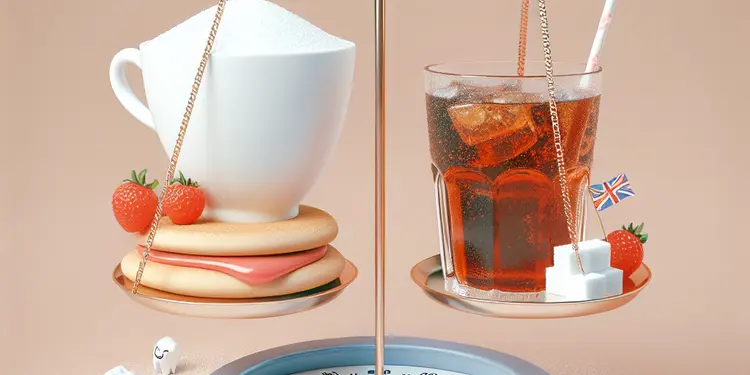
Are sugary drinks worse than sugary foods for causing tooth decay?
Relevance: 74%
-
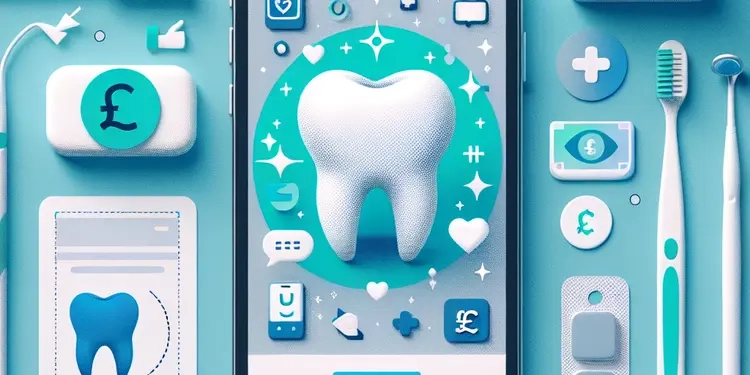
What is tooth decay?
Relevance: 69%
-
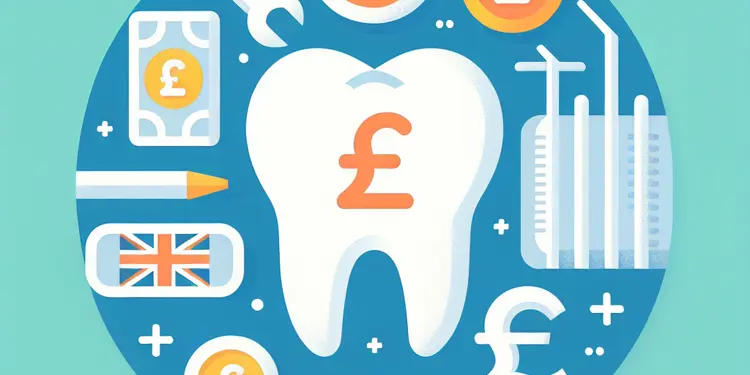
What treatments are available for tooth decay?
Relevance: 62%
-
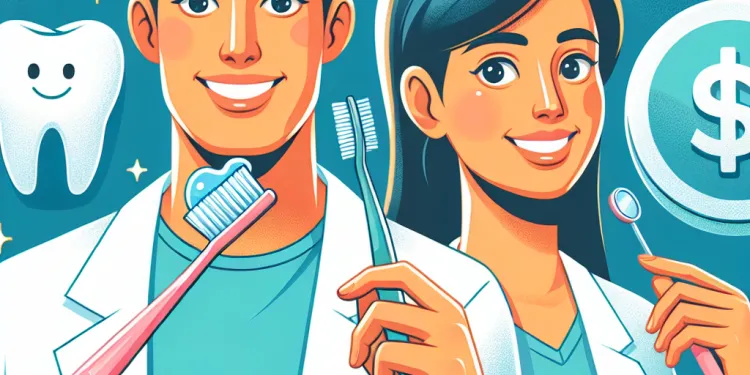
Dental Health: Tips for All Ages
Relevance: 37%
-

How can I satisfy my sweet tooth without consuming sugar?
Relevance: 27%
-
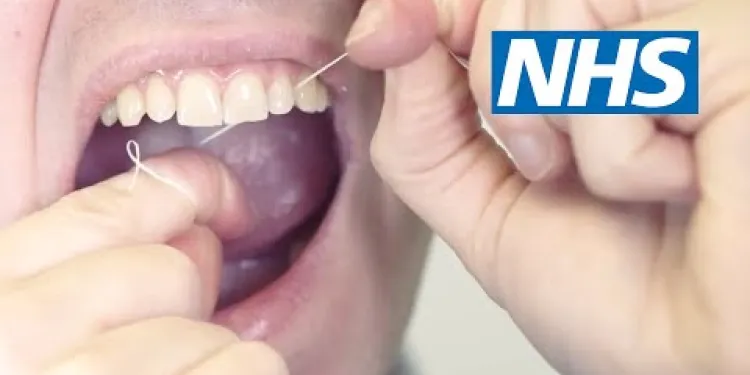
How to floss | NHS
Relevance: 26%
-

Is orange juice acidic and can it affect teeth?
Relevance: 23%
-

What treatments are covered by the NHS dental service?
Relevance: 23%
-
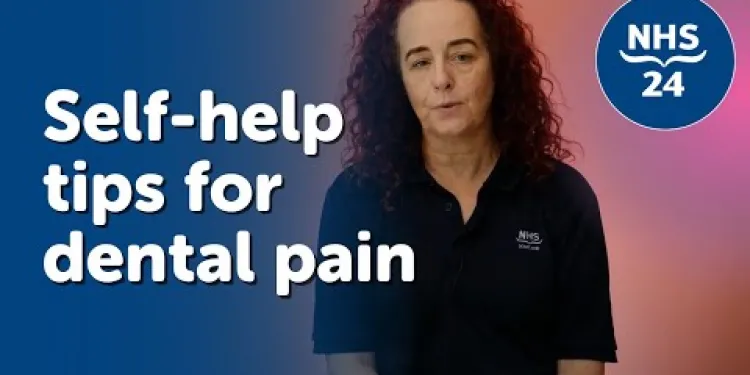
NHS 24 | Self-help tips for dental pain
Relevance: 22%
-

Are Turkey Teeth only for aesthetic purposes?
Relevance: 22%
-
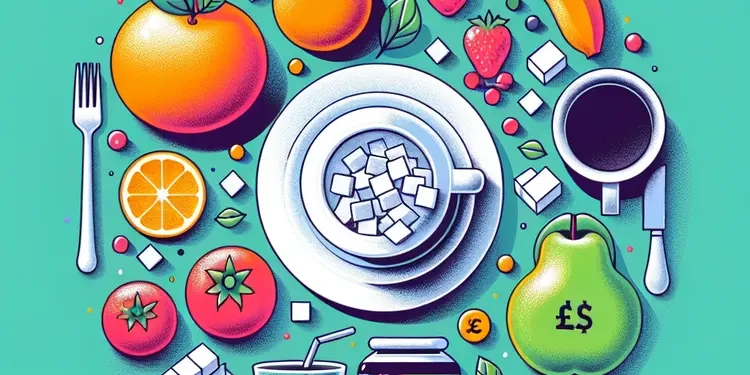
How much sugar should I eat every day?
Relevance: 21%
-
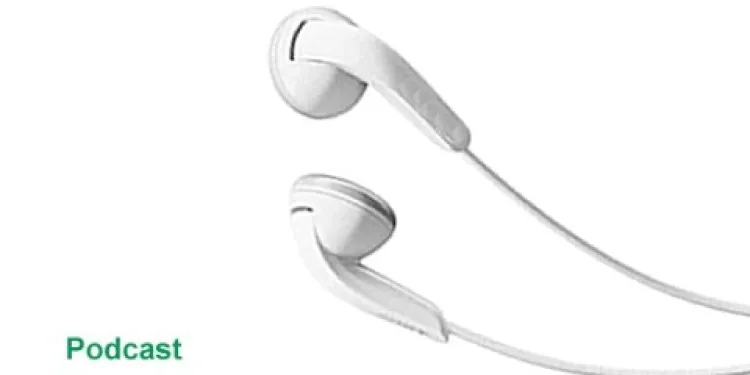
Coping with dry mouth
Relevance: 20%
-
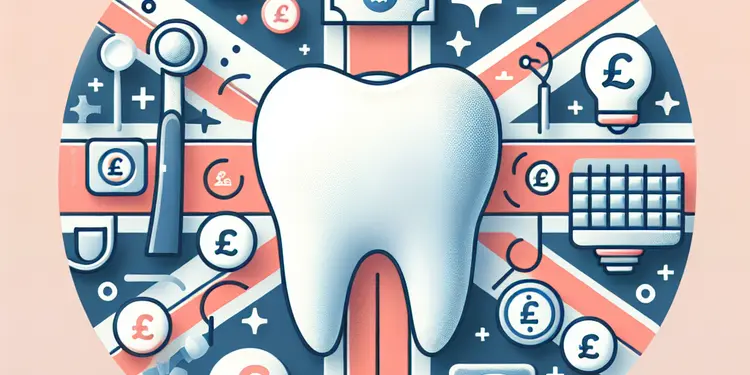
What is the difference between veneers and crowns?
Relevance: 19%
-
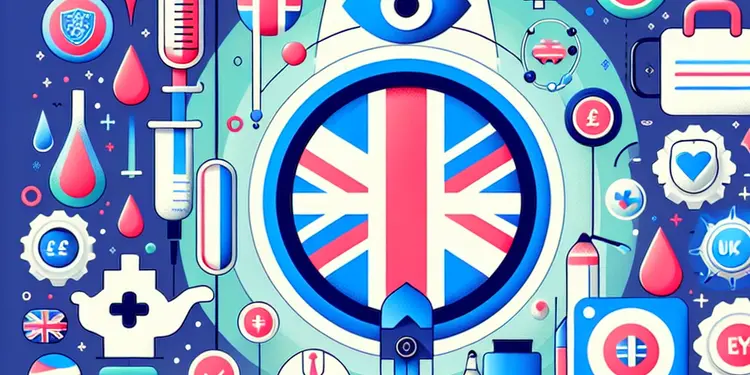
Can hypotony be prevented?
Relevance: 19%
-
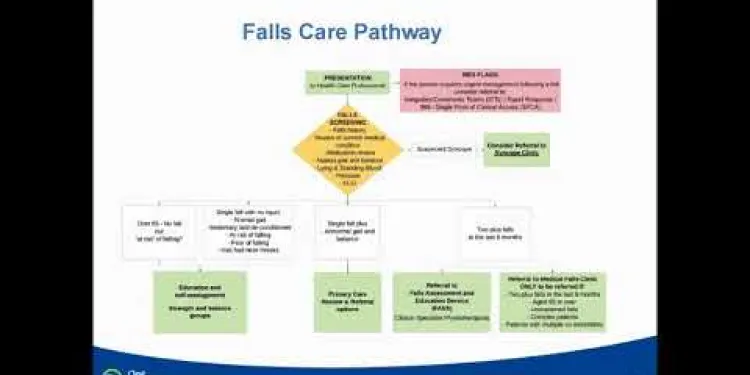
Falls Prevention Podcast
Relevance: 19%
-

Can CFS be prevented?
Relevance: 19%
-

Can meningitis be prevented?
Relevance: 19%
-

Can gonorrhoea be prevented?
Relevance: 19%
-
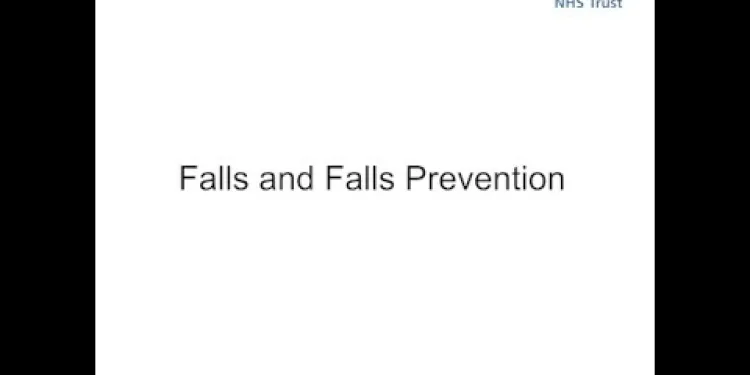
Falls and Falls Prevention
Relevance: 19%
-

Can chickenpox be prevented?
Relevance: 19%
-
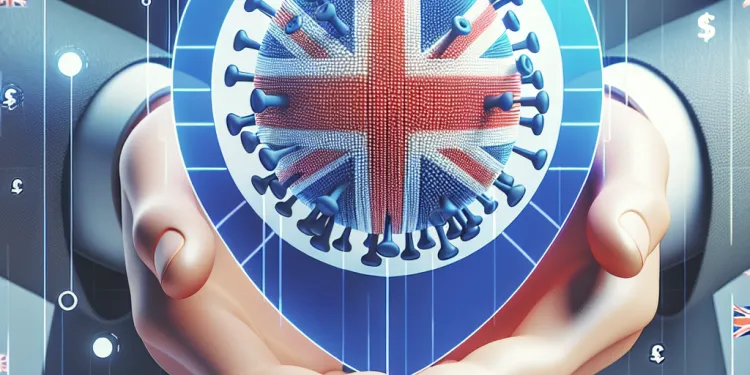
Can Rubella be prevented?
Relevance: 19%
-
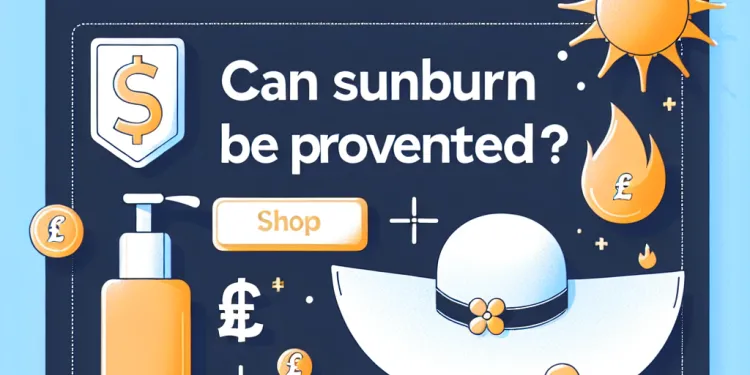
Can sunburn be prevented?
Relevance: 19%
-

Can shingles be prevented?
Relevance: 19%
-

Is postnatal depression preventable?
Relevance: 19%
-

Can shingles be prevented?
Relevance: 19%
-

What are 'free sugars' and why should they be limited?
Relevance: 18%
-
Are there preventative measures for eating disorders?
Relevance: 18%
-

How can HPV be prevented?
Relevance: 18%
-
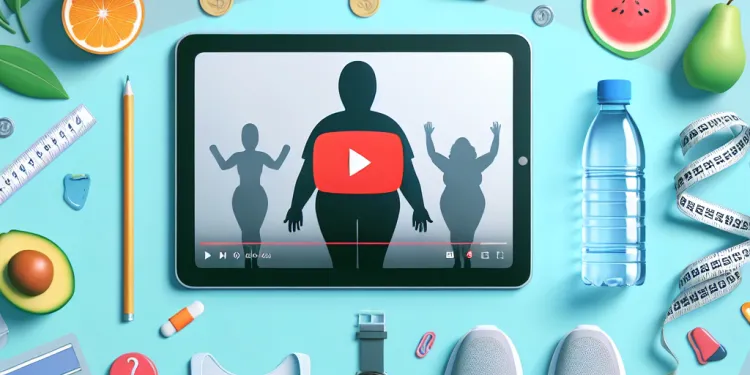
How can obesity be prevented?
Relevance: 18%
Understanding Tooth Decay
Tooth decay, also known as dental caries or cavities, is a common oral health issue that affects many people in the UK. It occurs when the enamel is worn down by acids produced by bacteria in the mouth. These acids are typically produced when bacteria break down sugar from the food and drink we consume. Over time, this can lead to holes or cavities in the teeth, which may cause pain, infection, or even tooth loss if not addressed.
Maintain Good Oral Hygiene
One of the most effective ways to prevent tooth decay is by maintaining good oral hygiene. This includes brushing your teeth at least twice a day with fluoride toothpaste. Fluoride helps to strengthen the enamel, making it more resistant to acid attacks. It is also important to brush your teeth for at least two minutes each time and to ensure you clean all surfaces of your teeth.
Flossing Regularly
Flossing once a day is essential for removing plaque and food particles from between the teeth where a toothbrush may not reach. By flossing regularly, you can prevent the build-up of plaque which can lead to decay. It’s important to use the correct technique and to be gentle to avoid damaging the gums.
Reduce Sugar Consumption
Reducing the intake of sugary foods and drinks can significantly lower the risk of tooth decay. Sugars are a major food source for the bacteria that cause decay, so cutting down on sugary snacks and drinks, particularly between meals, can reduce your risk. Opting for sugar-free snacks or chewing sugar-free gum can also help in maintaining oral health.
Regular Dental Check-Ups
Visiting your dentist regularly for check-ups is crucial in preventing tooth decay. It is generally recommended to see your dentist every six months, although your dentist might suggest more frequent visits based on your individual oral health needs. Regular check-ups allow your dentist to monitor the health of your teeth and gums and to catch any early signs of decay.
Consider Dental Sealants and Fluoride Treatments
Dental sealants and fluoride treatments can provide an additional layer of protection against tooth decay. Sealants are thin coatings that are painted on the chewing surfaces of the back teeth to protect them from decay. Professional fluoride treatments, applied by a dentist, offer higher concentrations of fluoride than over-the-counter products, providing extra protection for those at higher risk of cavities.
Stay Hydrated with Fluoridated Water
Drinking plenty of water, preferably fluoridated, can help wash away food particles and bacteria, reducing the chances of decay. Many areas in the UK have a fluoridated water supply which helps in protecting teeth. Regular consumption of tap water throughout the day can reinforce this benefit.
Conclusion
Preventing tooth decay requires a combination of maintaining good oral hygiene, moderating sugar intake, and regularly visiting your dentist. By incorporating these practices into your daily routine, you can maintain strong, healthy teeth and prevent decay effectively.
Understanding Tooth Decay
Tooth decay, also called cavities or dental caries, is when your teeth get damaged. This happens a lot to people in the UK. It occurs because tiny germs in your mouth make acids. These acids come from the sugar in the food and drinks we have. Over time, they make little holes in your teeth. These holes can hurt, get infected, or you might even lose a tooth if you don't fix them.
Maintain Good Oral Hygiene
To stop tooth decay, you need to keep your teeth clean. You should brush your teeth at least twice a day with toothpaste that contains fluoride. Fluoride makes your teeth stronger. Brush for two minutes each time, and make sure to clean every part of your teeth.
Flossing Regularly
Flossing once a day helps clean the spaces between your teeth. This is where your toothbrush might not reach. Flossing stops plaque from building up. Plaque is sticky stuff that can cause decay. Be gentle when you floss so you don't hurt your gums.
Reduce Sugar Consumption
Eating less sugar can help protect your teeth. Germs in your mouth love sugar and use it to make acid that harms teeth. Try not to have too many sweets and sugary drinks, especially between meals. Choose sugar-free snacks and chewing gum to keep your teeth healthy.
Regular Dental Check-Ups
Go to the dentist regularly to keep your teeth healthy. Usually, every six months is good. Sometimes your dentist may want to see you more often. Dentists can spot early signs of decay and help take care of your teeth and gums.
Consider Dental Sealants and Fluoride Treatments
Dentists can use special tools to protect your teeth. Dental sealants are like a shield on the back teeth that stops decay. Fluoride treatments from a dentist have more fluoride than regular toothpaste and give extra protection if you have more risk of cavities.
Stay Hydrated with Fluoridated Water
Drinking lots of water, especially if it has fluoride, helps keep teeth clean. It washes away food bits and germs. Many places in the UK have water with fluoride to help your teeth. Try to drink tap water during the day for this benefit.
Conclusion
To stop tooth decay, keep your teeth clean, eat less sugar, and see your dentist often. Doing these things every day helps keep your teeth strong and healthy.
Frequently Asked Questions
What is the most important step to prevent tooth decay?
Brushing your teeth twice a day with fluoride toothpaste is the most important step to prevent tooth decay.
Does flossing help in preventing tooth decay?
Yes, flossing daily helps remove food particles and plaque from between the teeth where a toothbrush can't reach, thereby preventing tooth decay.
How often should I visit the dentist to prevent tooth decay?
Visiting the dentist regularly, at least twice a year, can help prevent tooth decay and detect issues early.
Are dental sealants effective in preventing tooth decay?
Yes, dental sealants provide a protective coating on the chewing surfaces of back teeth, preventing decay.
Can dietary changes help prevent tooth decay?
Yes, reducing sugar intake and eating a balanced diet with plenty of vitamins and minerals can help prevent tooth decay.
What role does fluoride play in preventing tooth decay?
Fluoride strengthens tooth enamel and makes teeth more resistant to acid attacks from plaque bacteria and sugars in the mouth.
Is mouthwash necessary for preventing tooth decay?
Using a fluoride mouthwash can help strengthen teeth and reduce plaque, contributing to the prevention of tooth decay.
What type of toothbrush is best to prevent tooth decay?
A soft-bristled toothbrush is best, and an electric toothbrush can be especially effective at reducing plaque and preventing decay.
Does chewing sugar-free gum help prevent tooth decay?
Yes, chewing sugar-free gum increases saliva flow which helps neutralize acids and wash away food particles, reducing the risk of tooth decay.
How does drinking water help in preventing tooth decay?
Drinking water helps rinse away food particles and sugars, and if fluoridated, it can help strengthen teeth against decay.
Can tooth decay be reversed?
Early stages of tooth decay can sometimes be reversed with fluoride treatments, but advanced decay requires professional dental intervention.
Are there any specific foods that help in preventing tooth decay?
Foods rich in calcium, like dairy products, and crunchy fruits and vegetables can help stimulate saliva flow and strengthen tooth enamel.
Does smoking affect tooth decay prevention?
Yes, smoking can increase the risk of tooth decay by reducing saliva flow and increasing plaque buildup.
How does saliva help prevent tooth decay?
Saliva helps to neutralize acids, wash away food particles, and provides minerals that strengthen enamel.
Should I avoid certain drinks to prevent tooth decay?
Yes, avoiding sugary and acidic drinks like soda and fruit juices can reduce the risk of tooth decay.
How does proper brushing technique help prevent tooth decay?
Using proper technique ensures all surfaces of the teeth are cleaned, which helps in removing plaque and food particles that cause decay.
Are there specialized dental products that help prevent tooth decay?
Products containing fluoride, such as certain toothpaste and mouth rinses, can help prevent tooth decay.
Can probiotics help in tooth decay prevention?
Some studies suggest that probiotics may help balance oral bacteria and reduce the risk of tooth decay.
Do children need different methods to prevent tooth decay?
Children benefit from fluoride treatments, dental sealants, and proper brushing and flossing to prevent tooth decay.
Is it important to address dry mouth for preventing tooth decay?
Yes, addressing dry mouth by staying hydrated and possibly using saliva substitutes can help prevent tooth decay.
How can you stop teeth from getting holes?
Brush your teeth two times every day. Use toothpaste with fluoride. This helps stop your teeth from getting holes.
Does flossing help stop tooth decay?
Flossing your teeth can help stop tooth decay. Tooth decay means your teeth have holes.
Flossing is when you use a special string called floss to clean between your teeth.
Flossing helps remove food and germs that your toothbrush might miss.
Here are some tips to make flossing easier:
- Use a floss holder if it is hard to hold the floss.
- Ask a grown-up to help you learn how to floss.
- Floss gently to avoid hurting your gums.
Try to floss every day to keep your teeth healthy.
Yes, flossing every day helps clean bits of food and sticky stuff called plaque from between your teeth. A toothbrush can't clean there. This helps stop your teeth from getting holes.
How many times do I need to go to the dentist to stop my teeth from going bad?
It's good to go to the dentist every 6 months. This helps keep your teeth healthy and strong.
The dentist can check your teeth and clean them. They can also stop cavities from starting.
Using a calendar or setting a reminder on your phone can help you remember to visit the dentist.
Going to the dentist every six months is good. It helps stop your teeth from getting holes and finds problems early.
Do dental sealants help stop teeth from getting holes?
Yes, dental sealants are like a shield. They protect the back teeth from getting holes and damage.
Can food choices stop teeth from getting cavities?
Eating good foods can help your teeth stay strong. Choose foods like fruits, vegetables, and cheese. They help keep your teeth healthy. Try to drink water instead of sugary drinks like soda.
Brush your teeth twice a day with toothpaste. Use dental floss to clean between your teeth. This helps remove germs that can cause cavities.
If you find reading hard, maybe ask someone to read with you. You could also look for videos or audio books about keeping teeth healthy.
Yes, eating less sugar and eating healthy foods with lots of vitamins and minerals can help stop teeth from getting holes.
How does fluoride help stop teeth from getting holes?
Fluoride makes teeth strong. It helps protect teeth from acid. Acid comes from bacteria and sugar in your mouth.
Do you need to use mouthwash to keep your teeth healthy?
Using a special mouthwash with fluoride can make your teeth stronger. It also helps clean sticky stuff, called plaque, off your teeth. This keeps your teeth healthy and stops them from getting holes.
What kind of toothbrush stops teeth from getting holes?
A toothbrush with soft bristles is best. An electric toothbrush can help clean your teeth even better. It helps stop plaque and keeps your teeth healthy.
Can chewing gum without sugar help stop cavities?
Chewing gum that has no sugar can help keep your teeth healthy. When you chew this gum, it makes more spit in your mouth. Spit helps clean your teeth and stops the bad stuff that causes cavities.
Here are some tips to help keep your teeth strong:
- Brush your teeth two times every day.
- Use toothpaste with fluoride. It helps protect your teeth.
- See a dentist regularly to check your teeth.
Remember, chewing gum that has no sugar can be one part of keeping your teeth strong and healthy!
Chewing sugar-free gum is good for your teeth. It makes more spit in your mouth. Spit helps keep your teeth safe. It gets rid of food bits and stops bad stuff that can hurt your teeth.
How does drinking water stop teeth from going bad?
Drinking water is good for your teeth. It helps keep your mouth clean and washes away bits of food. This helps stop holes in your teeth, called tooth decay.
Here are some ways water helps:
- It cleans your mouth and gets rid of sugar and acid that can make your teeth go bad.
- Water often has fluoride, which is good for strong teeth.
- Drinking water stops your mouth from getting too dry. A dry mouth can cause more tooth problems.
To help you remember, try these tools:
- Set a timer to remind you to drink water.
- Keep a water bottle with you during the day.
Drinking water helps wash away bits of food and sugar from our teeth. If the water has fluoride in it, it can make teeth stronger and stop them from getting holes.
Can a bad tooth get better?
Teeth can get holes called cavities. If you catch them early, you can help make your teeth strong again. This is called “reversing tooth decay.” You can brush your teeth with special toothpaste that has fluoride. That helps make teeth stronger.
If the cavity is big, you might need to see a dentist. The dentist can help fix your tooth.
Ask an adult to help you remember to brush your teeth every day. A calendar can help you keep track of when to brush.
When teeth start to go bad, we can sometimes fix them with fluoride. This stops them from getting worse. But if the teeth are really bad, you need to see a dentist.
Do some foods help stop tooth decay?
Yes, some foods can help keep your teeth healthy. Eating crunchy fruits and vegetables, like apples and carrots, can clean your teeth. Cheese and yogurt have calcium, which is good for teeth. Drinking water can wash away food bits. Remember to brush and floss your teeth, too!
Try using tools like a timer to make sure you brush your teeth for 2 minutes. You can also use floss sticks to make flossing easier.
Foods that have lots of calcium, like milk and cheese, can help make your teeth stronger. Eating crunchy fruits and vegetables can help too. They make you produce more spit, which is good for your teeth.
Does smoking hurt your teeth?
Yes, smoking can be bad for your teeth. It can make your mouth dry and cause more germs to stick to your teeth.
How does spit help stop teeth from going bad?
Spit, also called saliva, helps keep your teeth healthy.
Saliva washes away food and germs from your teeth.
It has stuff that fights germs and stops holes in teeth.
Brush your teeth and drink water to help your spit work.
Spit helps keep your mouth healthy. It stops bad stuff that can hurt your teeth. It cleans bits of food away and gives your teeth things to make them strong.
Do some drinks hurt my teeth?
Some drinks can be bad for your teeth. Here are a few tips:
- Avoid drinks with lots of sugar, like soda and sweet fruit juices. These can make holes in your teeth.
- Drink water or milk instead. These are better for your teeth.
- If you drink something sugary, rinse your mouth with water after.
- Try using a straw to keep sugary drinks away from your teeth.
- Brush your teeth twice a day to keep them healthy.
You can use pictures or videos to learn more about keeping your teeth healthy.
Yes, staying away from drinks like soda and fruit juice, which have a lot of sugar and acid, can help keep your teeth healthy.
How does brushing your teeth the right way stop tooth decay?
Brushing your teeth the right way helps stop tooth decay. Here is how:
- Removes Plaque: Brushing gets rid of plaque. Plaque is a sticky stuff on your teeth that causes problems.
- Stops Cavities: Plaque can make holes in your teeth called cavities. Brushing can stop these holes from forming.
- Protects Gums: Healthy brushing keeps your gums safe and healthy.
Here are some tips for better brushing:
- Use a soft toothbrush.
- Brush for 2 minutes, twice a day.
- Ask an adult for help if you need to.
Helpful tools:
- Use a toothbrush timer to help you brush long enough.
- Consider using an electric toothbrush for easier cleaning.
Remember, brushing well keeps your teeth happy and strong!
Brushing your teeth the right way makes sure all parts of each tooth are cleaned. This helps get rid of sticky stuff called plaque and tiny bits of food that can make your teeth go bad.
Are there special dental products that stop tooth decay?
Toothpaste and mouth rinses with fluoride can help stop teeth from getting rotten. These are good to use for healthy teeth.
Can good germs stop teeth from rotting?
Some studies say that probiotics might help keep mouth germs healthy and lower the chance of getting cavities.
Do kids need special ways to stop cavities?
Kids can keep their teeth healthy by using fluoride treatments, dental sealants, and brushing and flossing the right way. These things help stop their teeth from getting holes.
Is it important to stop dry mouth to keep teeth healthy?
Dry mouth means you don't have enough spit. Spit helps keep your teeth clean. If your mouth is too dry, it can cause bad things like tooth holes (cavities). It is good to drink more water and chew sugar-free gum. These help make more spit. Remember to talk to your dentist if you have dry mouth.Yes, drinking lots of water can help if you have a dry mouth. You can also use special products that add saliva to your mouth. This can help stop your teeth from getting holes.
Useful Links
This website offers general information and is not a substitute for professional advice.
Always seek guidance from qualified professionals.
If you have any medical concerns or need urgent help, contact a healthcare professional or emergency services immediately.
Some of this content was generated with AI assistance. We’ve done our best to keep it accurate, helpful, and human-friendly.
- Ergsy carfully checks the information in the videos we provide here.
- Videos shown by Youtube after a video has completed, have NOT been reviewed by ERGSY.
- To view, click the arrow in centre of video.
- Most of the videos you find here will have subtitles and/or closed captions available.
- You may need to turn these on, and choose your preferred language.
- Go to the video you'd like to watch.
- If closed captions (CC) are available, settings will be visible on the bottom right of the video player.
- To turn on Captions, click settings .
- To turn off Captions, click settings again.
More Items From Ergsy search
-

How can I prevent tooth decay?
Relevance: 100%
-

Can using mouthwash prevent tooth decay?
Relevance: 96%
-

Is tooth decay common in children?
Relevance: 92%
-

Can tooth decay be reversed?
Relevance: 91%
-

How is tooth decay diagnosed?
Relevance: 91%
-

What are the symptoms of tooth decay?
Relevance: 90%
-

Can drinking water help prevent tooth decay?
Relevance: 90%
-

Oral Health Awareness - Tooth Decay
Relevance: 90%
-

How does fluoride help prevent tooth decay?
Relevance: 90%
-

How does diet affect tooth decay?
Relevance: 85%
-

What is the role of dental sealants in preventing tooth decay?
Relevance: 82%
-

Are sugary drinks worse than sugary foods for causing tooth decay?
Relevance: 74%
-

What is tooth decay?
Relevance: 69%
-

What treatments are available for tooth decay?
Relevance: 62%
-

Dental Health: Tips for All Ages
Relevance: 37%
-

How can I satisfy my sweet tooth without consuming sugar?
Relevance: 27%
-

How to floss | NHS
Relevance: 26%
-

Is orange juice acidic and can it affect teeth?
Relevance: 23%
-

What treatments are covered by the NHS dental service?
Relevance: 23%
-

NHS 24 | Self-help tips for dental pain
Relevance: 22%
-

Are Turkey Teeth only for aesthetic purposes?
Relevance: 22%
-

How much sugar should I eat every day?
Relevance: 21%
-

Coping with dry mouth
Relevance: 20%
-

What is the difference between veneers and crowns?
Relevance: 19%
-

Can hypotony be prevented?
Relevance: 19%
-

Falls Prevention Podcast
Relevance: 19%
-

Can CFS be prevented?
Relevance: 19%
-

Can meningitis be prevented?
Relevance: 19%
-

Can gonorrhoea be prevented?
Relevance: 19%
-

Falls and Falls Prevention
Relevance: 19%
-

Can chickenpox be prevented?
Relevance: 19%
-

Can Rubella be prevented?
Relevance: 19%
-

Can sunburn be prevented?
Relevance: 19%
-

Can shingles be prevented?
Relevance: 19%
-

Is postnatal depression preventable?
Relevance: 19%
-

Can shingles be prevented?
Relevance: 19%
-

What are 'free sugars' and why should they be limited?
Relevance: 18%
-
Are there preventative measures for eating disorders?
Relevance: 18%
-

How can HPV be prevented?
Relevance: 18%
-

How can obesity be prevented?
Relevance: 18%


